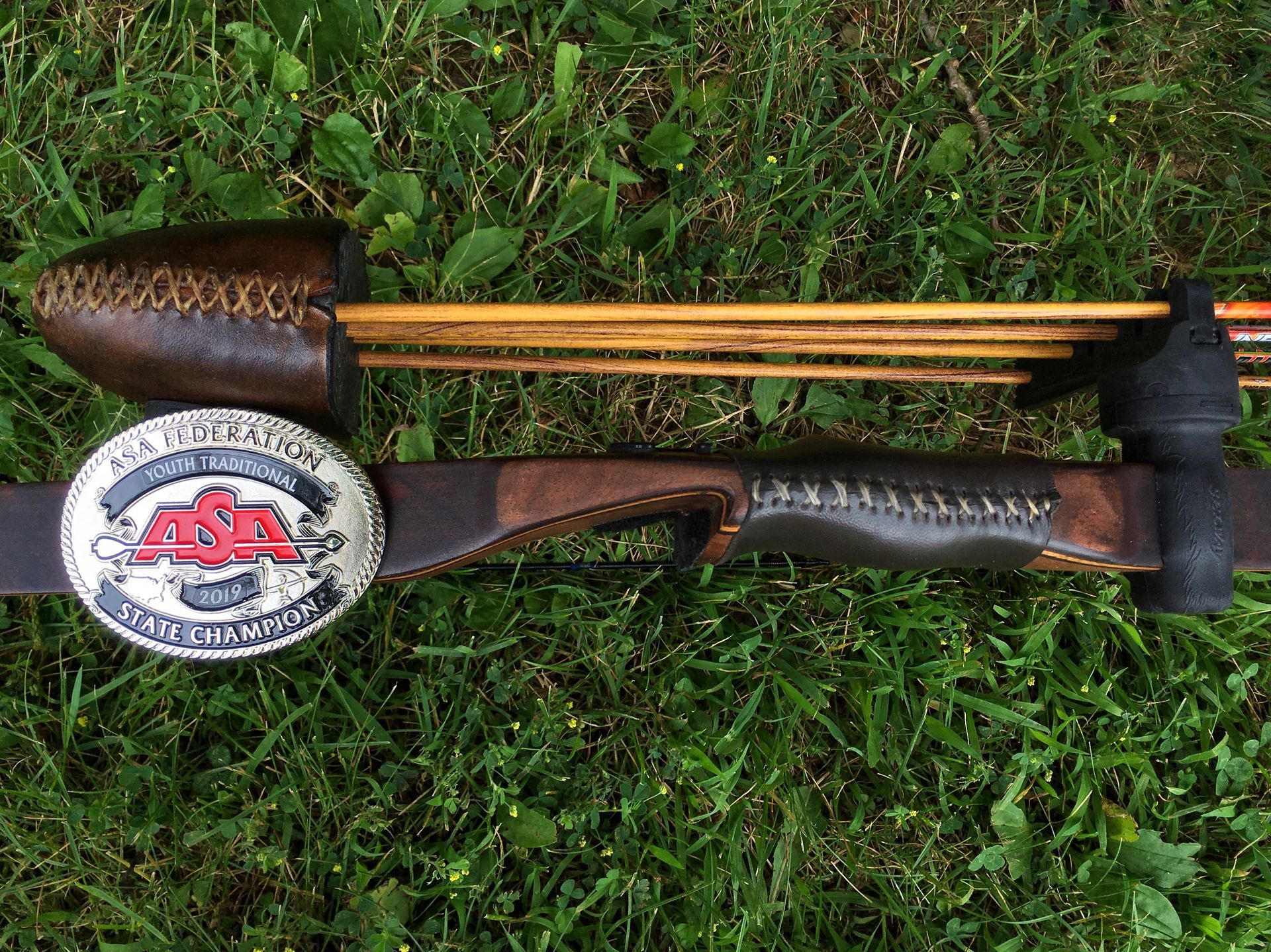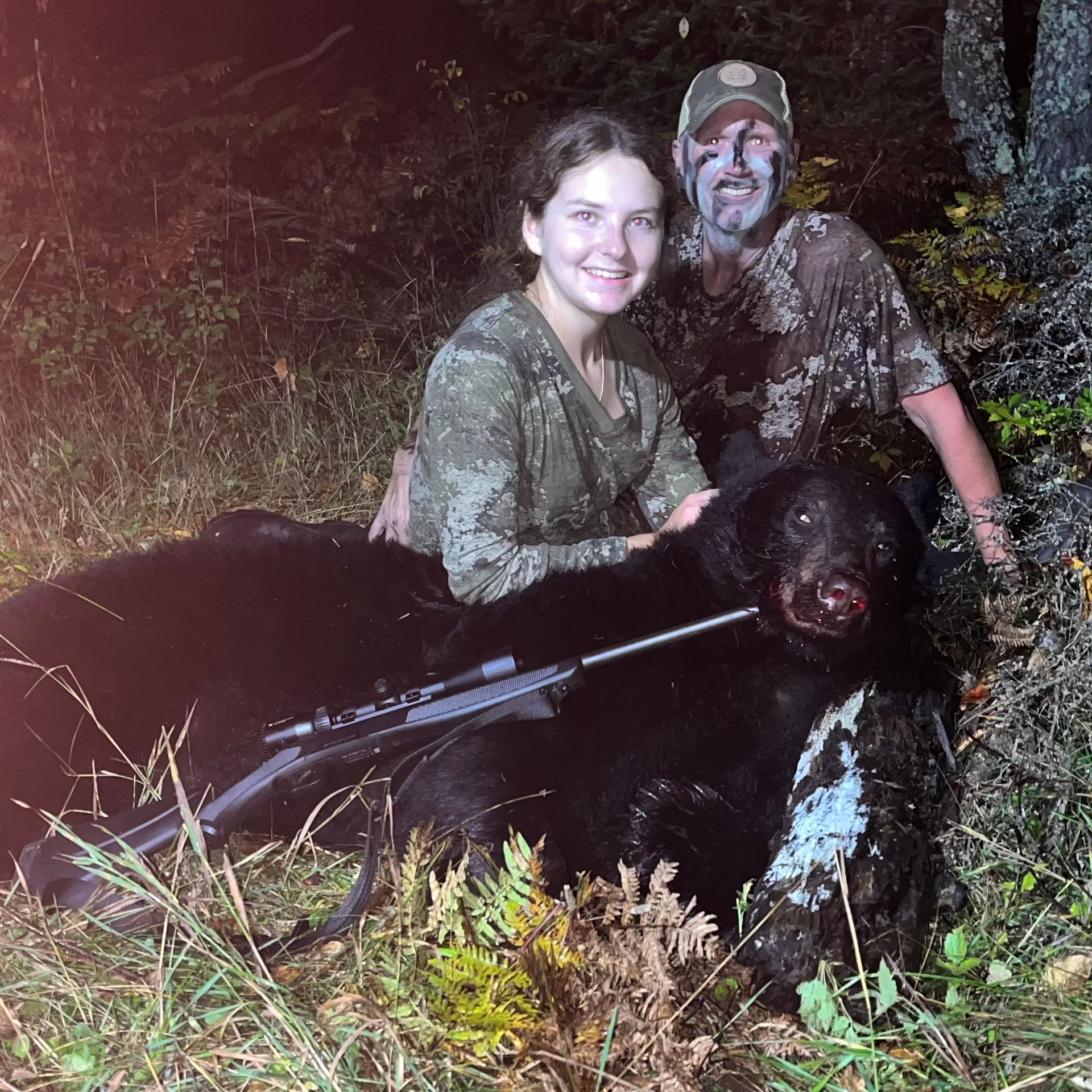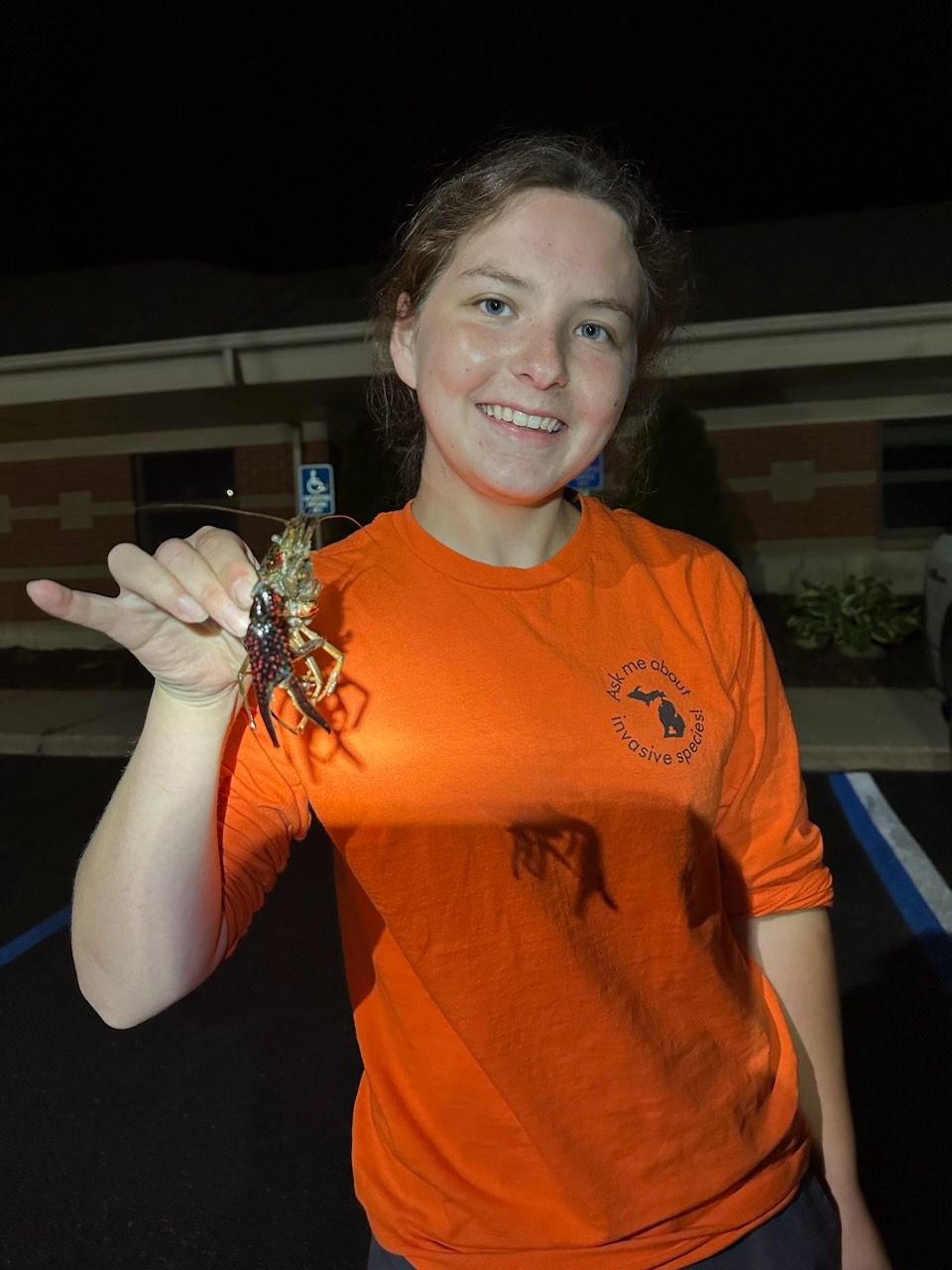Meet the new AmeriCorps Member at MUCC
Hello everyone! My name is Katelyn Helsel, and I am the new Huron Pines AmeriCorps member serving at MUCC this year. This my first time serving with AmeriCorps, and I am very excited to help foster MUCC's On the Ground program and to form new connections with natural resource professionals and the public alike.
I grew up in southwestern Michigan (just south of Grand Rapids) and have always had a passion for natural resources and the outdoors. Hunting is a big tradition in my family, and I have been hunting since I was around nine years old. I love to hunt whitetail deer, which is where the majority of my hunting time is spent, but I also turkey hunt occasionally and have gone on a couple of fall black bear hunts in the Upper Peninsula. I shot my first black bear in October 2023 near Iron River, and it was one of the coolest moments of my life. I have also been shooting archery since I was around nine years old, and most of my hunting is done with my longbow (although I shot my bear with my rifle). I have participated in many 3D shoots and indoor archery tournaments over the years throughout the state of Michigan.

For my first year of college, I went to Northern Michigan University in Marquette. I really enjoyed living in the Upper Peninsula for a year and getting to see some very cool sights, but I decided to transfer to Michigan State University. I graduated from MSU in May 2023 with a B.S. in Fisheries and Wildlife- Conservation Biology. I loved being in the East Lansing area and being able to explore a lot of different things in my classes, from electrofishing in the Red Cedar to foraging at Fenner Nature Center.
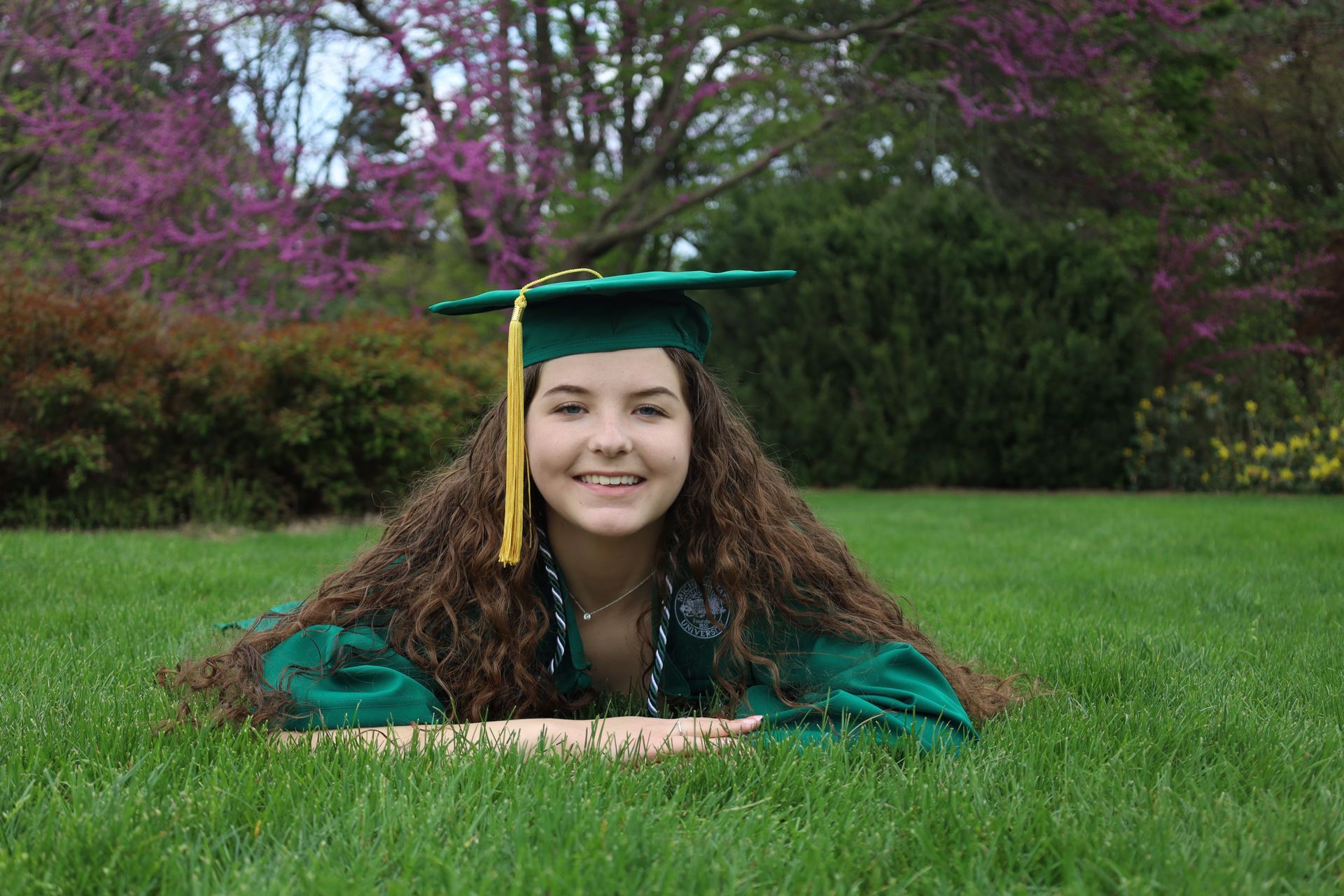
While I attended school, I worked a seasonal job for Ingham Conservation District as one of their aquatic/terrestrial technicians involved in the Mid-Michigan CISMA (Cooperative Invasive Species Management Area). This work involved conducting surveys and herbicide treatments for invasive plant species, namely European frog-bit, Japanese knotweed, and black swallow-wort. I grew up kayaking on the lake in the summertime at my family’s cottage, so getting to kayak all summer looking for EFB was one of the highlights of my year (treating JKW and BSW was pretty cool too). After I graduated, I landed a very similar seasonal job with Barry Conservation District as an invasive species technician involved in the BCK CISMA. This position also included herbicide treatments for JKW, as well as mile-a-minute weed (found only in Calhoun County). In addition, we conducted surveys for spotted lanternflies and red swamp crayfish, which are found mostly near the Detroit and Novi area (except for one population in Vicksburg).
Some of the volunteer opportunities that I've had include helping out at several horseback riding facilities with their therapeutic riding programs, as well as helping out the Lost Lake Woods Club with their deer check station. I helped weigh each deer, take antler measurements (if applicable), age teeth, and interact with hunters to collect information about their harvest.
When I am not serving at MUCC, I enjoy other outdoor activities like horseback riding, hiking, camping, and photography. I’ve been fortunate enough to hike in some of the most beautiful places in the U.S., namely national parks (Yellowstone, Grand Tetons, Arches, Canyonlands, Mesa Verde, Great Smoky Mountains, and the Grand Canyon). I hope to one day visit all 63 national parks if I am able! I also enjoy spending time with my two dogs, Lola (lab/hound mix) and Maverick (GSP).
I am very excited to be serving at MUCC, and am looking forward to meeting and interacting with all of the wonderful volunteers who work to improve Michigan’s wildlife habitat!
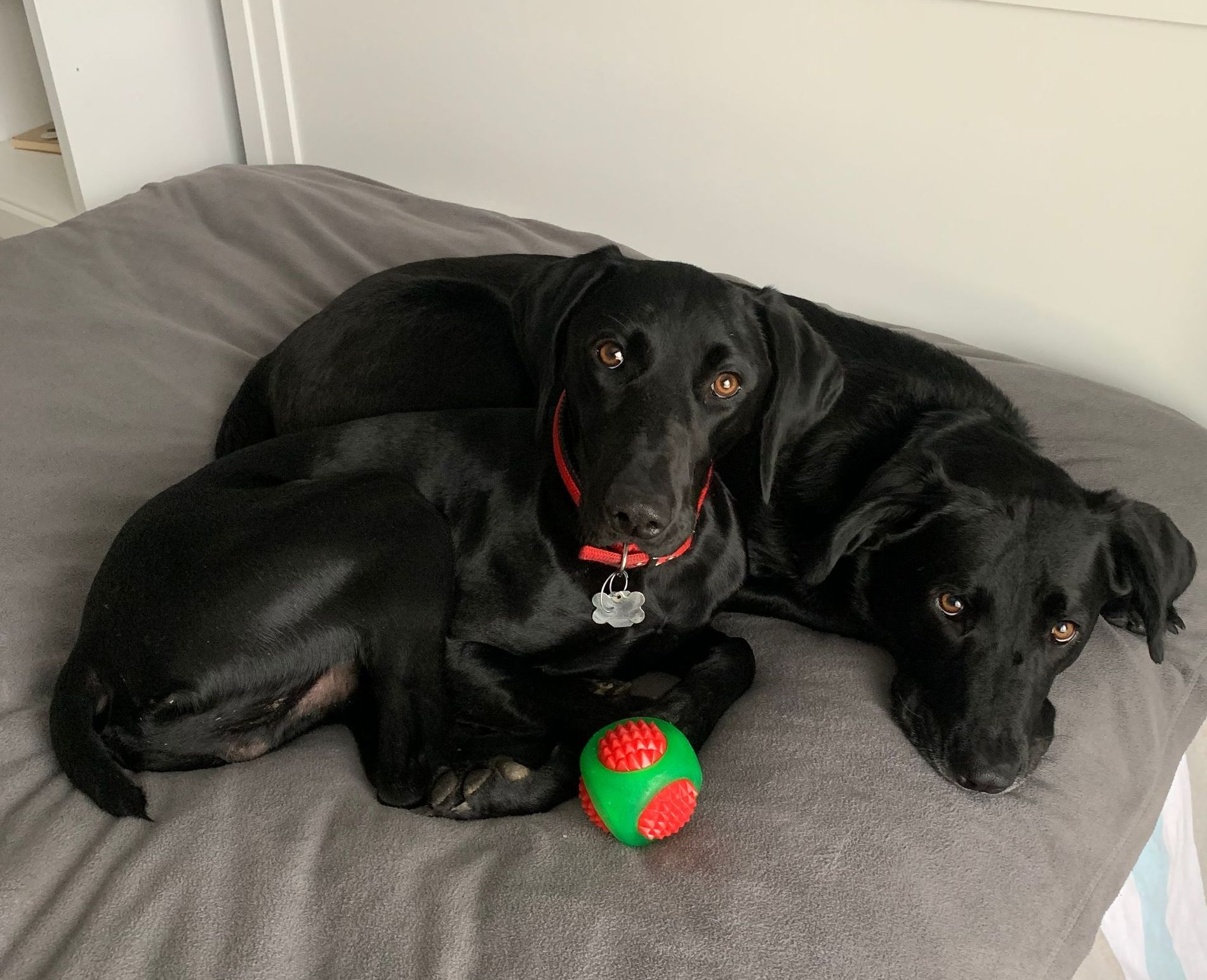
The post Meet the new AmeriCorps Member at MUCC appeared first on Michigan United Conservation Clubs .
Recent Posts


